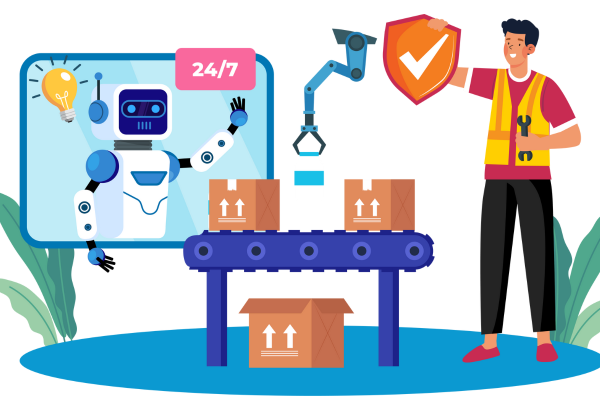Unleashing AI Revolution: Work and Productivity
Category: AI Revolution
Introduction:
Artificial Intelligence (AI) is transforming businesses by improving efficiency, productivity, and decision-making processes. Companies are increasingly integrating AI-driven tools to stay competitive and optimize their workflows, leading to a more streamlined work environment.
This blog will delve into AI's impact on productivity, its key applications, and its influence on the future of work.
1. AI-Powered Automation:
AI enables companies to automate repetitive tasks that were once time-consuming and prone to human error. From data entry to customer support, automation reduces manual effort, allowing employees to focus on high-value tasks. Some key areas where AI-driven automation shines include:
- Customer Service: Chatbots and virtual assistants handle inquiries 24/7, resolving customer issues instantly without the need for human intervention.
- Data Processing: AI systems can analyze vast amounts of data in minutes, generating reports, identifying trends, and providing insights that would take humans days to process.
- Email Filtering and Scheduling: AI tools like Google Smart Compose or Microsoft Outlook Focused Inbox filter and prioritize emails, while scheduling assistants such as x.ai automate meeting bookings.
2. Enhanced Decision-Making:
AI can analyze large sets of data and deliver actionable insights that help managers make informed decisions. AI algorithms detect patterns and predict outcomes, assisting companies in everything from market analysis to internal resource allocation.
- Predictive Analytics: By analyzing historical data, AI tools forecast future trends in consumer behaviour, financial performance, and market conditions. Companies can use this information to adjust strategies in real-time, improving their adaptability.
- Risk Management: AI systems can assess financial risks, detect fraud, and provide real-time alerts, allowing businesses to mitigate potential threats proactively.
3. Workforce Optimization:
AI is reshaping how companies manage their workforce, from recruitment to performance tracking. By automating administrative tasks, AI allows HR departments to focus on more strategic initiatives like employee engagement and development.
- Recruitment: AI-powered platforms streamline the hiring process by screening resumes, conducting preliminary interviews through chatbots, and identifying the best candidates based on a company's specific criteria.
- Employee Training: AI can identify skills gaps in employees and recommend personalized learning paths, ensuring that the workforce remains up-to-date with the latest tools and knowledge.
- Performance Management: AI-driven systems monitor productivity, providing real-time feedback to employees and offering managers insights on optimising performance.
4. Productivity in Remote Work:
The rise of remote work has made AI-powered tools even more crucial for maintaining productivity. With employees dispersed globally, AI ensures that workflows remain seamless.
- Time Management Tools: AI-driven apps like RescueTime analyze how employees spend their work hours and provide insights on time allocation, helping them stay focused and productive.
- Remote Monitoring: AI-powered productivity trackers can monitor employee output, ensuring that remote teams remain productive without invasive micromanagement.
5. The Future of AI in the Workplace:
AI is continuously evolving, and its integration into workplace productivity will only deepen. As companies grow more familiar with AI tools, they'll likely see even greater efficiencies, freeing up employees for creative, strategic, and human-centric work.
- Hyper-Personalization of Work: AI will provide tailored work experiences, adapting schedules, work tasks, and training opportunities to inpidual employee preferences and needs.
- AI as a Co-Worker: The future may see AI systems acting as collaborative team partners, taking on specific roles that complement human workers’ skills and creativity.
- Continuous Learning: AI systems will become even better at learning from user behaviour, continually optimizing processes and providing smarter insights as companies scale.
Conclusion:
AI has transformed how businesses approach work and productivity, from automating tasks to enhancing decision-making. The potential for AI in the workplace is vast and as the technology advances, it will lead to higher efficiency, innovation, and a reshaping of the future of work. However, ethical considerations are crucial to ensure that AI adoption enhances human roles and promotes fairness in the workplace.
